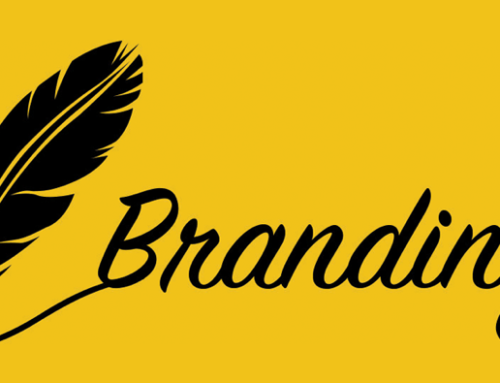Imagine you’re at a party. And imagine you’re a people person (if you aren’t already).
Image: UOregon Conference Services via Flickr, CC 2.o
Now imagine someone asks you the classic party get-to-know-you question:
“What do you do?”
And you tell them about how you like to eat ice cream and jog and take care of your dog, and you manage a company that sells lawnmowers.
Then you ask them the same question. And the response is, “I’m a person.” Then they walk away and eat some corn chips.
And you look at them confused.
Like this:
Image: Nisa yeh via Flickr, CC 2.0
Sound ridiculous? It is. But this is the approach I see in the early days of a lot of start-up marketing.
Entrepreneurs are certainly an idea culture, so they come up with mind-blowing ideas.
Unfortunately, most of these ideas fail because they fail to successfully hit their mark in the open market.
And the reason they fail to hit their mark in the open market is that they fail to differentiate themselves from the competition.
Marketing your start-up requires you to determine a very specific meaning for your company. Instead, many entrepreneurs attempt to achieve pie-in-the-sky concepts that lack focus and force of a particular shape or personality that stands out in the mind of the prospect.
Tech companies start calling themselves “idea incubators.” Staffing agencies sell “solutions.” Design firms become “marketing strategists.”
If you spoke at a party the way most businesses speak to the public, no one would know who you were after you left.
This is true for any business, even those at the top of the market. McDonald’s is best served by selling hamburgers, not chicken, and Heinz is best served by selling ketchup, not mustard. Yet for start-ups, developing a company personality is even more important.
If you don’t stand out in the mind of the market, you will not survive.
During the fledgling start-up years, that’s more essential than ever.
Start-ups are also largely based on the personality of the entrepreneur; how could they not be? The entrepreneur has to conceive, pitch, and close while keeping the train on track. Therefore, marketing yourself in a non-generic way is just as important to your start-up as marketing the start-up independently.
But when it comes to marketing as individuals””personal branding”” I see the root of the problem we see with start-ups: generic pitches.
I semi-reconnected with someone I knew a long time ago at a networking event last year. This person sent me an email after the event that said:
Daniel –
It was wonderful (statement about how and where the person saw me). Let’s stay in touch.
Let me know if you ever need any freelance help.
I thought, “OK, that’s weird to ask about work as one of the first things you say to someone after not seeing them for a few years.”
It’s also… generic.
But I do sometimes find hidden talent in people. Maybe this person was really struggling for work. Maybe this person was clueless or super clueless.
Who knows?
So I sent a reply:
I always keep an eye out for freelance help. Can you tell me a little about what you are looking for (skill sets you want to use, rates, etc.)?
That way I can keep an eye out from inside my own company, and also pass your name along if someone mentions something to me.
As for staying in touch: Let’s!
BTW, (something about LinkedIn)
Thanks again for sending an email my way,
Daniel
I got a reply email 12 hours later, at 4:31 AM that said:
Thank you for your quick response.
I have a broad skill set that encompasses:
Business Development + Networking + Print Production Management + SEO, Facebook Ad Campaign and PPC Project Management + Social Media Usage and Operational Policy Development + Facebook Ad Copy and Postings + Digital Brand Ambassador + New Business Development + Landing Page Development and Tracking + Media Relations + Copywriting and Editing + Client Management + Executive Presentation and Media Training + Crisis Communication/Reputation Management + Community Relations + Marketing Management + Web User Experience ManagementI am flexible on rates, depending on client/project/budget.
Now I ask you (as an entrepreneur who does a lot of those things): What on Earth am I supposed to do with that?
There is nothing in that list that makes me think, “Oh, this person would be PERFECT for that project I’m working on!”
Nothing that tells me if the person wants premium clients or discount jobs. What industry the person specializes in…
Really, nothing special at all!
Instead, it’s every piece of marketing jargon imaginable, slapped into one convoluted list, then followed up with a fairly unhelpful statement on ideal clients, market cap, expertise, specialization, or anything else.
It’s Swiss Army Knife marketing.
The curse of the generic at its worst.
Image: Jonas Bergsten [Public domain], via Wikimedia Commons
See, the Swiss Army Knife has plenty of tools. It can open bottles. It has scissors. It has knives.
But your kitchen drawer has all of those items independently, and you almost always use them independently (unless you are, perhaps, 1000 feet deep in the woods, but that’s a different story). And the reason you don’t want to use the Swiss Army Knife is that the Swiss Army Knife is a pain to use.
It’s a pain to open bottles with. It’s a pain to use as a pair of scissors. It’s even a pain to cut with.
When you feel a need to be a provider to all people, you fail to attract attention.
The good news is there’s a cure:
Narrow your focus.
Whatever you say you do, make it less over time. Every time you expand your services outside of a certain mental concept, you confuse your customers.
A tip: pretend you have less than three days to launch your startup.
My pitch if it helps: “RedShift Writers is the only Houston, Texas content writing company specializing in crafting content that is compelling for customers and effective for search engines.”
People ask me about social media, SEO, websites, brochures, press releases, speeches, blog writing, PR, message strategies, sales, consulting…everything. Believe me: saying I specialize in writing doesn’t hurt me one bit. I receive no less bids regarding other work. And I can take or leave whatever work I want, whenever I want.
My niche is specific, but every business needs it.
Develop a personality for what you are doing. If you can’t do that, you may need to develop yourself personally before you can start a company or free lance career. Either way, narrowing your focus to specific tasks so others can index you in their Rolodex and pick up the phone when they need someone who is really good at the thing you do is the best way to consistently own and grow your customers.












[…] 4. Start-Up Marketing and Yourself: Don’t be a Swiss Army Knife […]